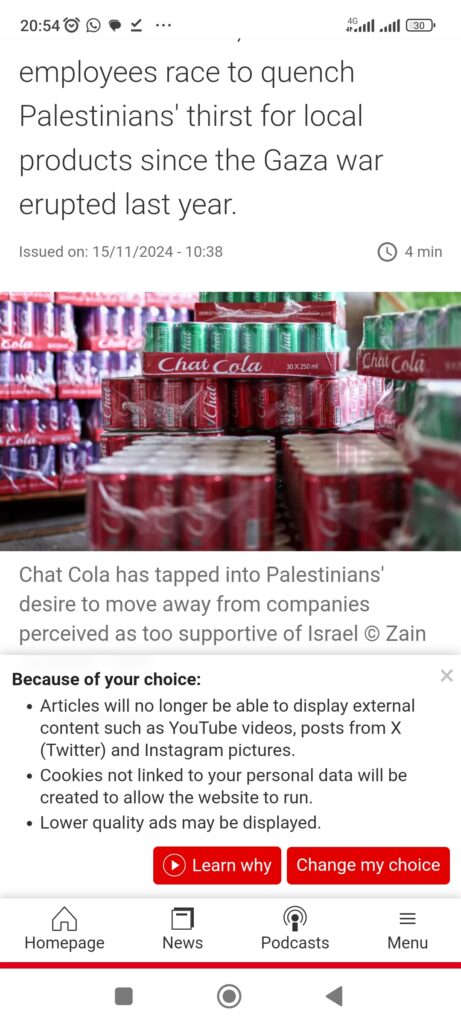Nestled in a vibrant red factory amidst the subdued hills of the West Bank, Chat Cola’s employees are working tirelessly to meet soaring demand for local products since the Gaza war last year. This homegrown soda, produced in Salfit, has emerged as a potent symbol of Palestinian resistance and self-reliance.
The boycott of foreign products linked to Israel or the US has fueled Chat Cola’s rapid rise. The movement has targeted global giants like Coca-Cola, perceived by many Palestinians as complicit due to the US’s significant military aid to Israel. The result has been a widespread pivot to local brands, with Chat Cola becoming a household name.
Owner Fahed Arar explains, “Chat Cola is more than a drink—it represents our resilience and determination to support our own economy.” Supermarkets and restaurants across major cities like Ramallah are now stocking the soda, aligning with the growing sentiment to back local products.
However, challenges loom large. Economist Raja Khalidi notes that Israeli restrictions on raw materials limit the factory’s output to just 10–15% of market demand. To address this, Arar plans to expand operations with a new factory in Jordan to cater to regional consumers.
The boycott movement has also resonated beyond Palestine, gaining traction in neighboring Arab nations. For example, the closure of Carrefour stores in Jordan signifies growing regional solidarity with the cause.
Chat Cola’s success story highlights the powerful shift toward local alternatives, underscoring a collective effort to challenge global brands and assert Palestinian economic independence.


